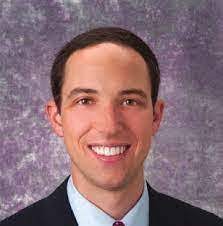
Dr Michael Hilton are Emergency doctors play a crucial role in hospitals, particularly when it comes to treating patients with critical conditions such as heart attacks or strokes. But their importance extends beyond emergencies. They also provide essential services during non-urgent medical situations, ensuring patient safety before and after surgery. Let’s explore how emergency physicians save lives in various scenarios.
Keeping Patients Safe Before and After Surgery
One of the key responsibilities of emergency doctors is to ensure patient safety before and after surgery. They serve as a vital link between patients and specialists, overseeing their care throughout the entire surgical process. From conducting pre-operative assessments to coordinating post-operative care, emergency doctors play a critical role in optimizing patient outcomes.
As the field of emergency medicine continues to grow, with approximately 1 million emergency department visits daily, the expertise and vigilance of emergency doctors are in high demand.
The First Doctors to Assess and Treat Patients
Emergency doctors are typically the first healthcare professionals to encounter a patient. Their expertise enables them to quickly assess the patient’s condition and determine the appropriate course of treatment. They are trained to handle a wide range of conditions, from minor injuries to life-threatening emergencies like heart attacks.
The ability of emergency medicine practitioners to promptly diagnose and initiate treatment can be life-saving, particularly for patients experiencing severe pain or discomfort that requires immediate attention. Their swift interventions can stabilize patients and lay the groundwork for further specialized care.
Acting as a Bridge Between Patients and Specialists
Emergency doctors serve as a vital bridge between patients and specialists. They play a crucial role in our healthcare system by promptly diagnosing and treating injuries or illnesses that require immediate attention. Whether it’s evaluating chest pain, shortness of breath, or other urgent symptoms, emergency doctors work diligently to identify the underlying causes and initiate appropriate interventions.
Their ability to make accurate diagnoses and provide initial treatment onsite is instrumental in preventing further deterioration and ensuring a smooth transition to specialized care, when necessary.
Conclusion
Emergency doctors, such as Dr Michael Hilton, play an indispensable role in saving lives, not only in critical situations but also during non-urgent medical scenarios. As the first point of contact for patients, they make critical decisions regarding treatment and act as a bridge between patients and specialists. Their expertise, swift interventions, and coordination of care before and after surgery contribute significantly to ensuring patient safety and optimal outcomes. The tireless efforts of emergency doctors have a profound impact on healthcare delivery and contribute to saving countless lives every day.